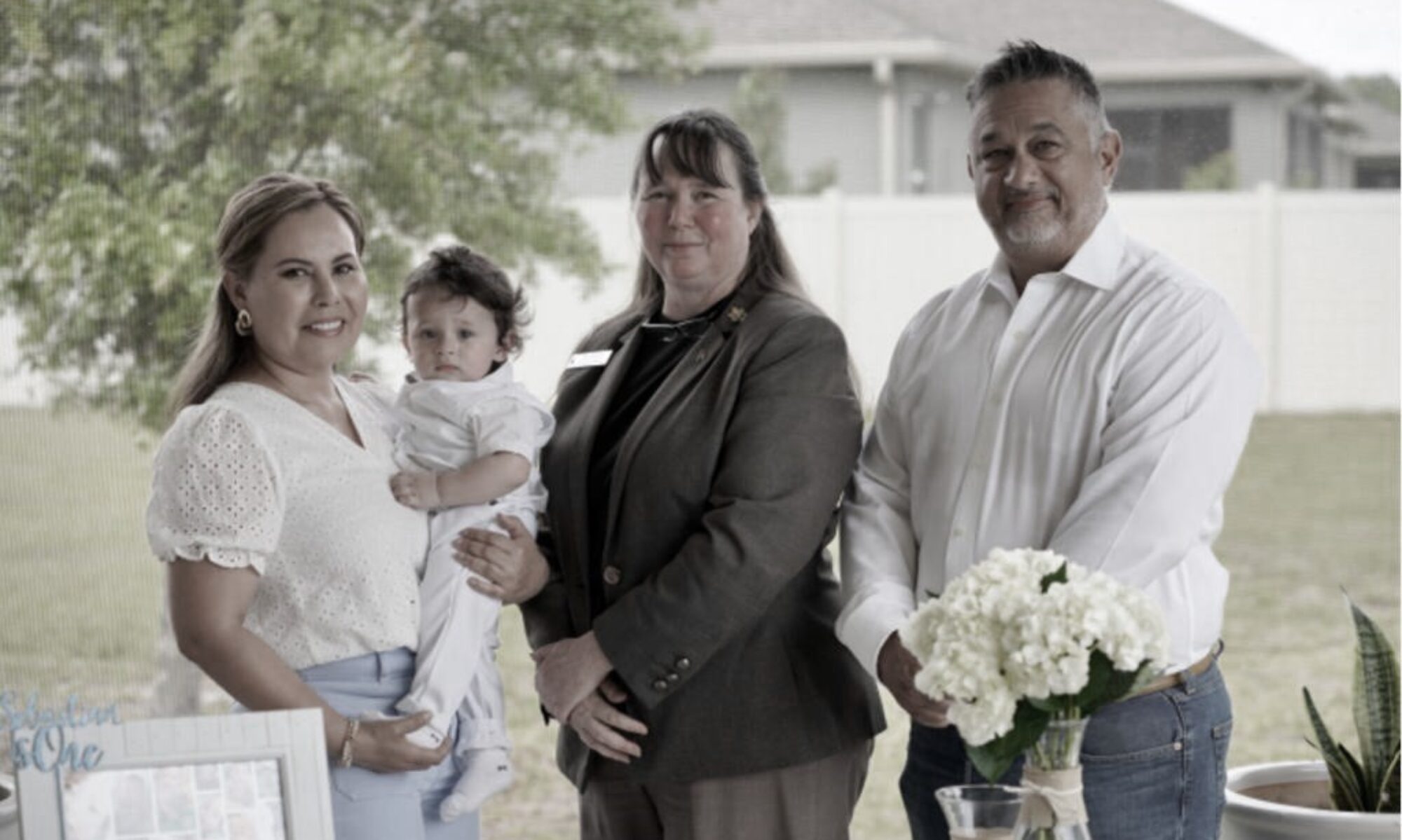Wedding planning is joyful – but already stressful without worrying about identity discrimination. Most officiants are inclusive, and if unable to perform your ceremony they can provide referrals to someone who can help.
However, some couples have less friendly experiences. I hear from clients who have approached wedding officiants and been turned away – some have been hung up on, called names, or had officiants try to “save” them when they requested a secular or other non-traditional ceremony.
Whether an LGBTQIA+ wedding ceremony, a custom-written Wiccan ceremony, an Atheist ceremony, a Dueling Officiants Ceremony (one religious, one not…), a “sign & go” couple-only wedding at a Starbucks, or any other meaningful way to honor the unique journey of a couple…a Humanist Celebrant can help.
Did you know … there’s a whole network of ordained Humanist Celebrants right here in Central Florida – a hidden gem of resources at your fingertips.
What to ask your Officiant regarding your identity
Interview your officiant – make sure they’re right for the job. First and foremost, be direct. You want an officiant who is comfortable with your request and who can provide helpful, meaningful suggestions for creating the ceremony of your dreams. Say exactly what you need so that you can make sure the officiant is the right fit for you. There are lots of officiants out there – remember the saying, “if the shoe doesn’t fit, it’s not your shoe.”.
Here are a few great questions i’ve gotten from couples:
“We are a Wiccan couple and will be having our ceremony in the forest at night. What are some ways we can honor our Wiccan tradition in our ceremony?”
“I am Baptist and my family is also. My partner and her family are Atheists. What are some things we can do in the ceremony that bridge both families and honor everyone?”
“My fiance is a transitioning man who uses they/them pronouns. We want to make sure you can honor that.”
“We were married as Catholics 10 years ago, but want to do a vow renewal because we are both Atheists now and want a wedding that reflects our values. Can you help us?”
“We are a bdsm couple and will be having a themed ceremony. Are you comfortable with this?”
In our hearts we’ve been married for years – we just want to do the paperwork. Can we just do that without any ceremony?
“We know you’re non-religious, but we want to have some religious readings in our ceremony. How do you accommodate that?”
More than Ceremonies
Humanist Celebrants can legally perform weddings as well as preside over other ceremonies such as celebrations of life/memorials, coming-of-age, butterfly ceremonies (transgender re-naming ceremonies), and baby welcomings (alternative to religious baptism).
Humanist Celebrants are the clergy of the non-religious, having the same rights as theistic clergy, allowing them to legally perform weddings under the jurisdiction of the law within their state, provide secular spiritual care, and are subject to “clergy” confidentiality.
Humanist Celebrants and Chaplains can also provide Humanist (secular) visits to those in hospitals, hospices, and prisons. The chaplains/clergy in those facilities may be inter- or non-denominational, but may still use religious language or not have an understanding of non-religious identities (or minority identities, such as Wiccan, Humanistic Judaism, Cultural Catholicism, etc.).
Have you seen the Identity Affirming Deathcare Directives? It’s free to download and offers a reflection on how our identities inform our deathcare wishes.
What is a Humanist Celebrant?
From The Humanist Society: “Humanist Celebrants provide meaningful, distinctly personal, and professional humanist ceremonies for a wide range of life’s major events and milestones. A celebrant can help commemorate the welcoming of a child, coming-of-age, gender transitions, commitment unions, weddings, memorials, and so much more! Our celebrants are committed to humanism and not bound by a traditional religion and its dogma, therefore they are able to provide custom-made ceremonies imbued with personal meaning and honor the shared humanity and values of those involved.”
Want more info? Let’s connect.



